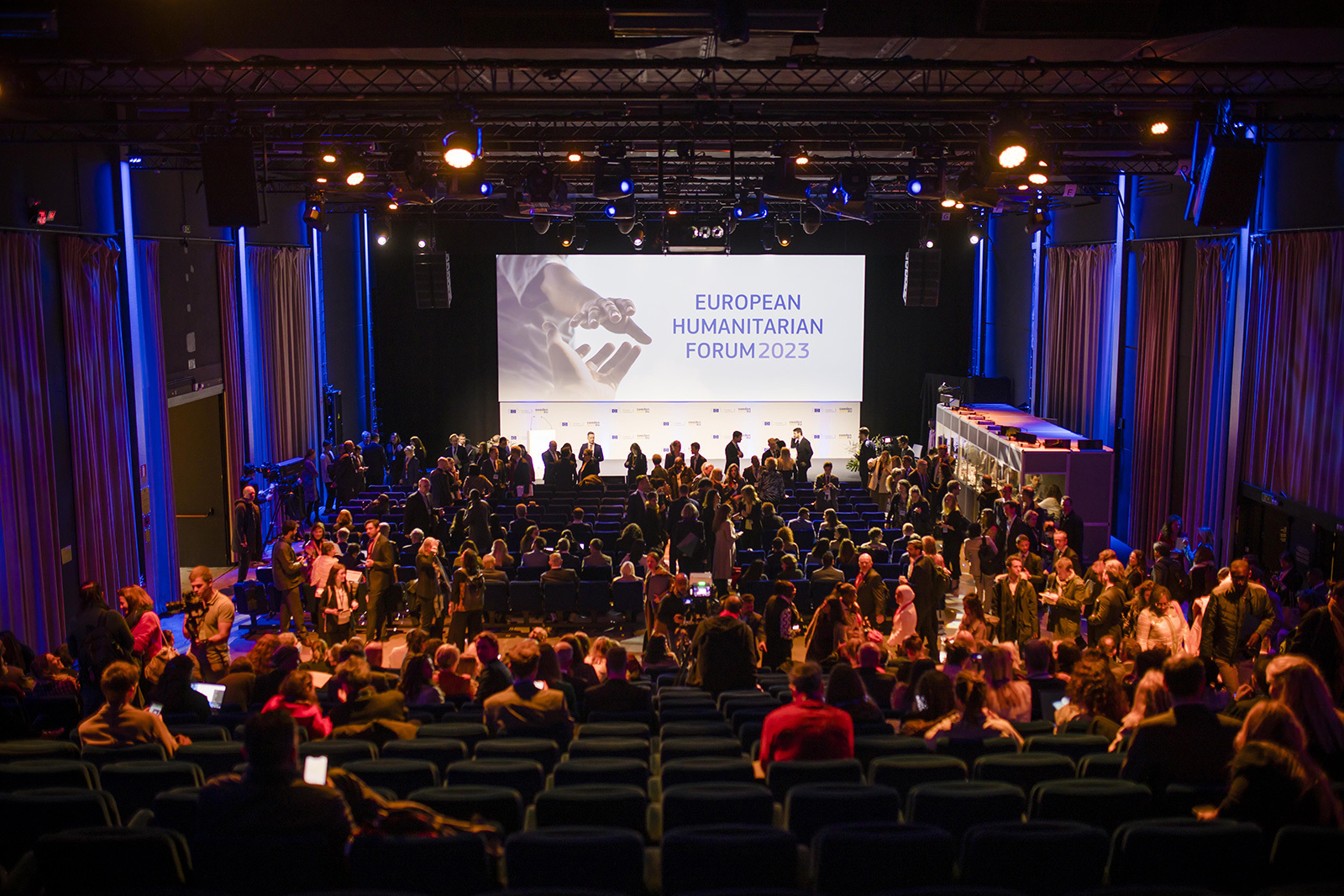Panel sessions
The EHF 2024 panel sessions will consist of moderated discussions among the wider humanitarian- development community, including EU institutions, EU Member States, third countries, partner organisations, local humanitarian actors, UN agencies, the Red Cross/Red Crescent family and academics.
Humanitarian Talks
Humanitarian Talks provide a space for discussion running in parallel with the EHF panels and an opportunity for focused exchange on concrete deliverables as well as on more specific humanitarian issues and crises that will not be addressed in the EHF24 panel sessions.
Humanitarian Talks complement the EHF programme with hands-on discussions, which reinforce the
“concrete delivery” aspect of the Forum. Proposed and led by partners and Member States, they offer an
alternative platform for humanitarian stakeholders to contribute and thematically complement the core
agenda of the event.
The Talks will showcase initiatives and discussions driven by partners, Member States and practitioners.
Recorded Humanitarian Talk, Organised by : Plan International
This HT puts the impact on civilians from different explosive weapons at the core of crisis response. It will explore two overlapping topics: use of explosive weapons in populated areas and the long-term impact Explosive Ordnance have on crises-affected communities. Explosive weapons kill and injure tens of thousands of civilians each year. Civilians suffer complex and life changing injuries and long-term psychological distress, whilst the use of explosive weapons in populated areas can also destroy critical infrastructure. This severely impacts the provision of essential services. Recognising this problem internationally, The Political Declaration on Strengthening the Protection of Civilians Arising from the Use of Explosive Weapons in Populated Areas was developed and places restrictions on use of explosive weapons. It was endorsed by 83 states in November 2022. Similarly, landmines and cluster munitions can remain active for years and decades after they were laid or dropped, whether in rural or urban areas. Though prohibited by two UN Conventions, clearance remains a top priority. Humanitarian Mine Action (HMA) is therefore an indispensable, lifesaving component of crisis response and a pre-condition to provide access for critical humanitarian interventions. However, international attention and funding for this lifesaving work are reducing, especially for interventions needed in forgotten crises and fragile contexts globally. Drawing on different perspectives from both civilians and humanitarian teams in the Middle East, Asia, and Africa, where HMA is taking place and where explosive weapons are being used, this HT aims to facilitate an open and interactive discussion amongst stakeholders.
Session organised by:
- The HALO Trust
- Ireland
- Norway
- Belgium
- Norwegian People's Aid
- International Network on Explosive Weapons (INEW,coordinated by Article36)
- Danish Refugee Council •Humanity & Inclusion

